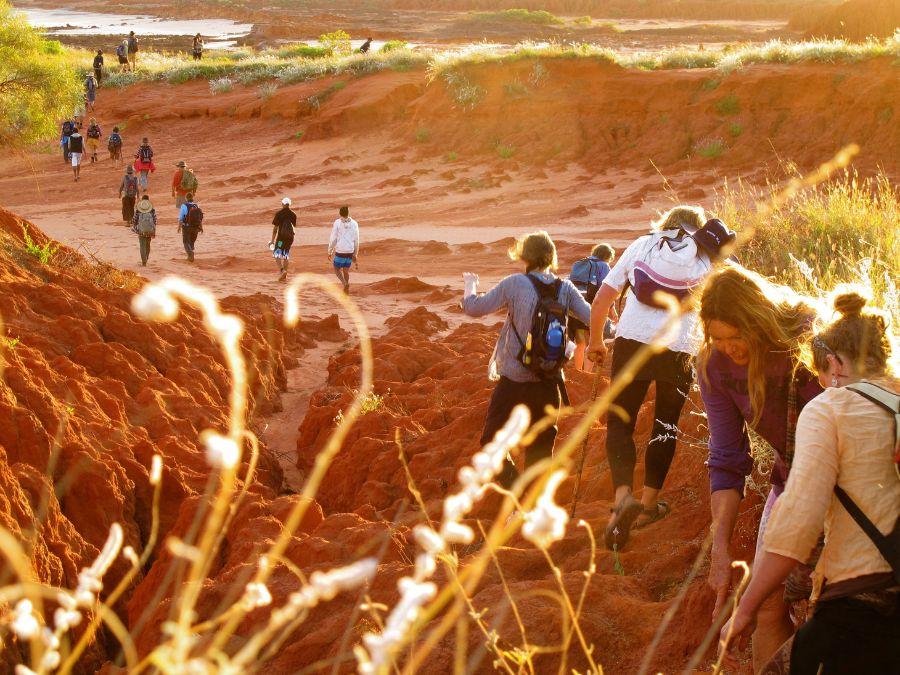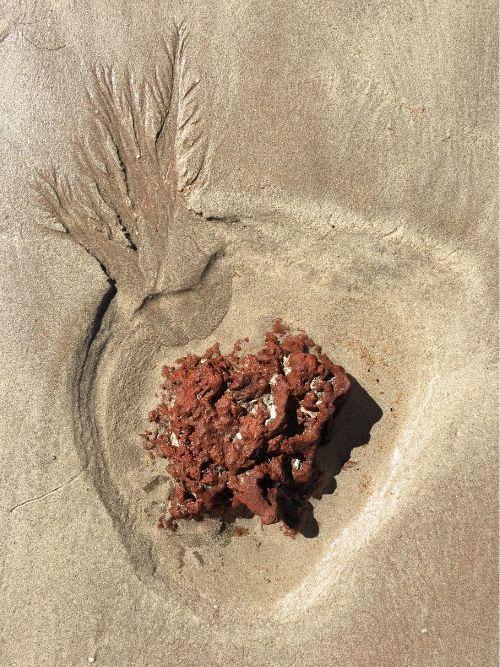News - 18 August 2023
Voice and Referendum UPDATED 3/10/23

Introduction and context
Through the Wilderness Society’s work, and in the context of our organisational purpose to protect, promote and restore wilderness and natural processes, the Wilderness Society commits to establishing and strengthening dialogue with First Nations for all aspects of our campaigns, including identification of opportunities for collaboration and cooperation.
Over three decades, the Wilderness Society has been working collaboratively with First Nations people to raise awareness of and protect the natural and cultural values of land and sea Country. These active collaborations and partnerships have led to thousands of hectares of land hand-backs to First Nations people, and working alongside strong and capable First Nations groups, we’ve helped to protect many places of outstanding universal value from destruction.
Continent-wide and systemic changes are needed to enhance recognition of the rights and aspirations of First Nations peoples in all aspects of land and water management, as well as decision-making in relation to their traditional lands, regardless of current land tenure, as sovereignty was never ceded.
First Nations peoples have an inherent right to self-determination and free, prior and informed consent (FPIC) and the Wilderness Society supports ongoing processes of consultation and negotiation between governments and First Nations over land and water management, that recognises and supports First Nations decision-making processes and obligations under the United Nations Declaration on the Rights of Indigenous Peoples (UNDRIP)1 .The Wilderness Society has formed a position in relation to the upcoming Referendum on a Voice to Parliament, in the context of the above commitments, and in the context of all three principles of the Uluru Statement: Voice, Treaty and Truth.
To help inform this position, we informally sought the views of a limited number of First Nations people with whom we work across the continent. Many are leading voices for the protection of Country, and for progressing First Nations rights and aspirations. We are also informed by the Uluru dialogues, public statements from First Nations leaders across the continent, the Langton and Calma report, public statements and actions around 26 January 2023, and ongoing media coverage.
We recognise there is both extensive and deep support, and some strong opposition, to the proposed Voice. Just days out from voting day, the context remains fast moving and dynamic. We continue ongoing inquiry and listening, and acknowledge that positions of First Nations people we are in dialogue with, and ourselves, may change.
Australia has an opportunity to progress and affect change. To tell the truth and not shy away from it, and as Australians, can support Treaty development.
Implementing the recommendations of the Uluru Statement from the Heart is an ongoing process, and beyond the Referendum and irrespective of the outcome, we will continue to listen deeply to First Nations voices and walk alongside them to build momentum for justice for First Nations peoples and the protection of cultural land and seascapes.
Wilderness Society is one of more than 200 community and non-government organisations from across the country that have come together to support the implementation of the Uluru Statement from the Heart through the Allies for Uluru Alliance.POSITION STATEMENT: Voice and Referendum

Wilderness Society recognises the diversity and validity of the range of views of First Nations peoples across the continent on the Uluru Statement, the referendum and the Voice to Parliament.
We support all three principles from the Uluru Statement from the Heart—Voice, Treaty and Truth. These were identified through a process of dialogue through community consultations and consensus across the continent. They are crucial to shift structural power, enact systemic change, and respect, value and recognise First Nations peoples’ rights and aspirations.
We support the creation of a Makarrata Commission to supervise a treaty process of agreement-making between governments and First Nations, and truth-telling about the history and impacts of colonisation, and ongoing racism, on First Nations people.
Our organisation heard directly from some First Nations leaders that any Voice to Parliament must be comprised of and recognise First Nations people who have the traditional and cultural authority to speak for Country and supports this as a requirement of any Voice. To do otherwise could be deeply damaging and risks another form of colonisation. This includes ensuring First Nations voices from regions and emerging leaders' views are also heard, as the future belongs to them.
We note the Referendum working group principles2, which include that the Voice must be chosen by First Nations peoples based on the wishes of local communities, be representative of Aboriginal and Torres Strait Islander communities and be community led. And support the recommendations that both the Makarrata treaty-making process and role, function and representation of the Voice to Parliament, be co-designed by First Nations people based on principles from the United Nations Declaration on the Rights of Indigenous peoples (UNDRIP) of Free, Prior and Informed Consent (FPIC) and self-determination3.
Wilderness Society envisions a test of the ‘Voice to Parliament’ working in practice would be the recognition of First Nations’ rights under UNDRIP are strengthened in law and practice. This would mean First Nations' livelihoods are improved, cultural authority is respected, and stronger cultural heritage protection and management of globally significant cultural landscapes are secured.
In the above context, the Wilderness Society is supportive of the establishment of a Voice to Parliament, and supports all three principles from the Uluru Statement from the Heart—Voice, Treaty and Truth.Right now, it is crucial that Australians make an informed vote and engage in this pivotal moment in a way that advances the rights and aspirations of First Nations people. Our organisation urges Australians to write yes.
1. Human Rights Commission. (2007). UN Declaration on the Rights of Indigenous Peoples. Last accessed (08-05-23) https://humanrights.gov.au/our-work/un-declaration-rights-indigenous-peoples-1.
2. First Nations Referendum Working Group (2023) Aboriginal and Torres Strait Islander Voice Design Principles, Australian Government. Last accessed (08-05-23) https://voice.gov.au/about-voi...
3. Human Rights Commission. (2007). UN Declaration on the Rights of Indigenous Peoples. Last accessed (08-05-23) https://humanrights.gov.au/our-work/un-declaration-rights-indigenous-peoples-1.